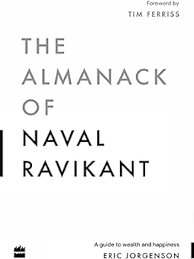
Wealth
- Seek wealth, not money or status. Wealth is having assets that earn while you sleep. Money is how we transfer time and wealth. Status is your place in the social hierarchy.
- You’re not going to get rich renting out your time. You must own equity – a piece of a business – to gain your financial freedom.
- You will get rich by giving society what it wants but does not yet know how to get. At scale.
Business & Profession
- You’re not going to get rich renting out your time. You must own equity – a piece of a business – to gain your financial freedom.
- Pick an industry where you can play long term games with long term people.
- Play iterated games. All the returns in life, whether in wealth, relationships, or knowledge, come from compound interest.
- Pick business partners with high intelligence, energy, and, above all, integrity.
- Learn to sell. Learn to build. If you can do both, you will be unstoppable.
Specific Knowledge
- Arm yourself with specific knowledge, accountability, and leverage.
- Specific knowledge is knowledge that you cannot be trained for. If society can train you, it can train someone else, and replace you.
- Specific knowledge is found by pursuing your genuine curiosity and passion rather than whatever is hot right now.
- When specific knowledge is taught, it’s through apprenticeships, not schools.
- Specific knowledge is often highly technical or creative. It cannot be outsourced or automated.
Leverage what you know best
- Embrace accountability, and take business risks under your own name. Society will reward you with responsibility, equity, and leverage.
- Fortunes require leverage. Business leverage comes from capital, people, and products with no marginal cost of replication (code and media).
- Code and media are permissionless leverage. They’re the leverage behind the newly rich. You can create software and media that works for you while you sleep.
- If you can’t code, write books and blogs, record videos and podcasts.Set and enforce an aspirational personal hourly rate. If fixing a problem will save less than your hourly rate, ignore it. If outsourcing a task will cost less than your hourly rate, outsource it.
- Set and enforce an aspirational personal hourly rate. If fixing a problem will save less than your hourly rate, ignore it. If outsourcing a task will cost less than your hourly rate, outsource it.
Learning to be the Best
- Judgement requires experience, but can be built faster by learning foundational skills.
- Study microeconomics, game theory, psychology, persuasion, ethics, mathematics, and computers.
- Become the best in the world at what you do. Keep redefining what you do until this is true.
